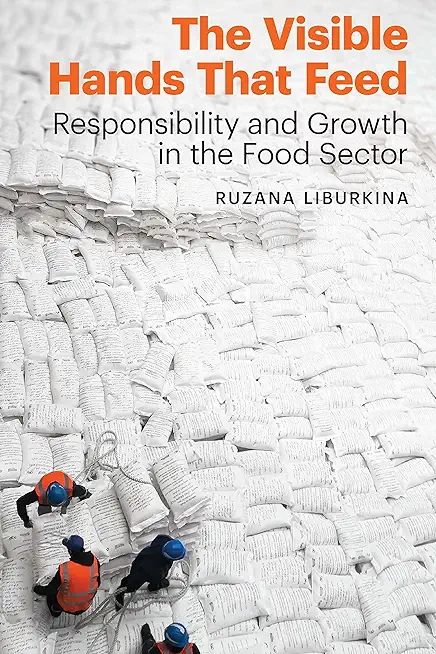
Liburkina, Ruzana
The Visible Hands That Feed provides crucial insights into the rifts and regularities that are characteristic of today's food systems. These insights attend to the widespread disquiet about the ethics and politics of food production and trade. While challenging utopian thinking, these findings give hope by elaborating on the promising nature of what falls between political and moral agendas.
In The Visible Hands That Feed Ruzana Liburkina approaches the food sector against the backdrop of its pivotal role for social and ecological relations to trace the potentials and limitations for sustainable change from within. Drawing on the results of ethnographic fieldwork in Europe and South America, Liburkina conducts an in-depth exploration of the practices, visions, concerns, and relationships that unfold at the very locations where food is grown, processed, stored, and served. By scrutinizing two critical notions in relation to sustainability--responsibility and growth--Liburkina offers insights into how sustainable change might be understood and further supported. In this first study of food production and provisioning that is grounded in participant observation in four types of food sector enterprises--farms, food processing companies, foodservice distributors, and public caterers--Liburkina fills an important gap in the literature on sustainable futures by offering detailed and diverse empirical insights into corporate food production and provisioning.
Ruzana Liburkina is a cultural anthropologist and a research associate in the Faculty of Social Sciences at Goethe University Frankfurt in Germany.







